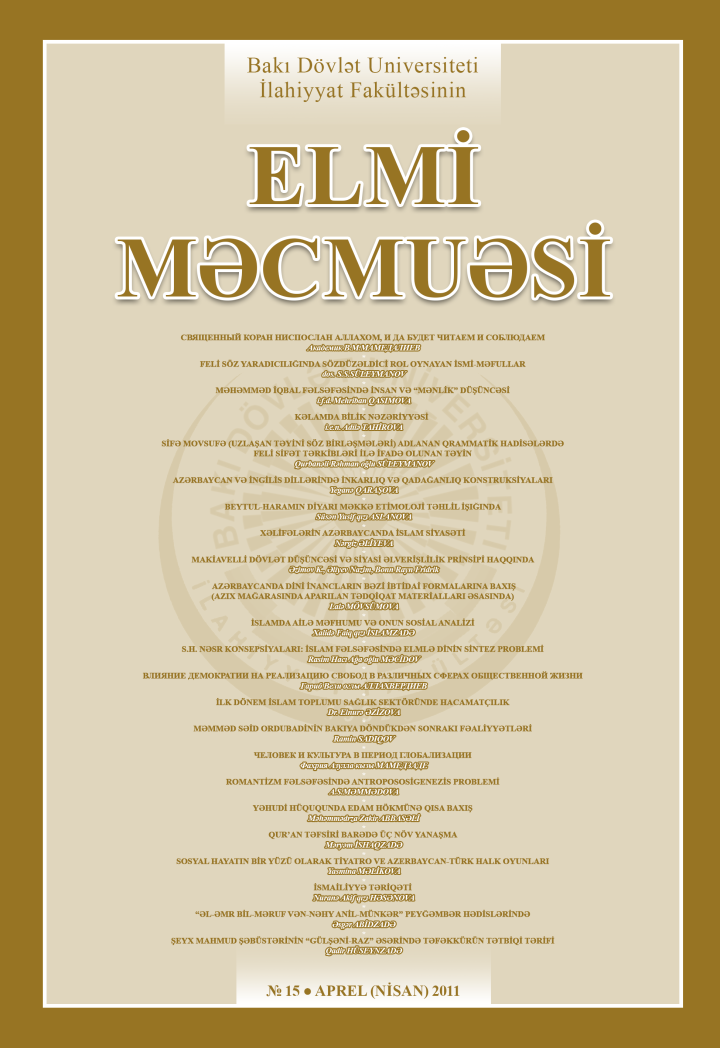Romantizm fəlsəfəsində antropoloji problemlər ən mühüm fundamental məsələ kimi tədqiqata cəlb olunur. Romantiklər insanı təkrar-olunmaz ayrıca fərd kimi konkret tarixi məkandan ayırır və onu bütün sosial rollardan təcriddə öyrənməyə cəhd edirlər. İnsan sanki, onu əsir edən gerçəklikdən təcrid olunaraq unikallığına, azadlığına və özünəməx-susluğuna qovuşur. Romantizmdə əvvəlki antropoloji təlimlərlə müqayi-sədə tamamilə yeni, özünəməxsus, bitkin şəxsiyyət konsepsiyası forma-laşmışdır.
As a universal phenomenon in the global-cultural space of romanticism, from the middle of the XVIII century, acted for two centuries as a leading historical and cultural movement in various areas of culture. Antroposotsiogeneza problem was one of the basic problem in philosophy of Romanticism. Romantic philosophers believed that man as a unit of the universe is a carrier of the mysteries of existence and nonexistence. Human knowledge is knowledge of the universe. Man, know yourself, recognizing your own greatness and infinity of individual empowerment, it is not so much the subject as a subject of public relations, rising to the level of the hero and genius, is able to direct the historical process. Individual selfknowledge serves as the basis of national identity. Romance, suited to the man as an individual, as to the subject of history and the world at large, served as the ideological basis for the subsequent flows (existentialism, personalism) and had a direct influence on the anthropological foundations of the philosophy of XIX XX centuries.
Как универсальный феномен в глобально-культурном пространстве романтизм, начиная с середины XVIII века, выступал на протяжении двух столетий в качестве ведущего историко-культурного движения в различных областях духовной культуры. Проблема антропосоциогенеза была одной из основных в философии романтизма. Философы-романтики полагали, что человек как единица универсума является носителем тайн бытия и небытия. Познание человека есть познание вселенной. Человек, познающий себя, осознавая бесконечность и величие собственных индивидуальных возможностей, становится не столько объектом, сколько субъектом общественных отношений, возвышаясь до уровня героя и гения, становится в состоянии направлять исторический процесс. Индивидуальное самопознание выступает также в качестве основы национальной идентификации. Романтики, подходившие к человеку как к отдельному индивиду, как к субъекту истории и мира в целом, послужили идейной основой для последующих течений (экзистенциализма, персонализма) и оказали непосредственное влияние на формирование антропологических основ философии XIX-XX вв.
